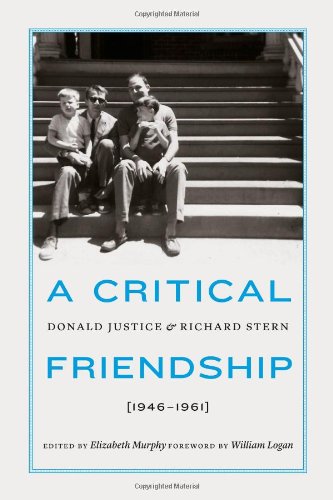

Most ebook files are in PDF format, so you can easily read them using various software such as Foxit Reader or directly on the Google Chrome browser.
Some ebook files are released by publishers in other formats such as .awz, .mobi, .epub, .fb2, etc. You may need to install specific software to read these formats on mobile/PC, such as Calibre.
Please read the tutorial at this link: https://ebookbell.com/faq
We offer FREE conversion to the popular formats you request; however, this may take some time. Therefore, right after payment, please email us, and we will try to provide the service as quickly as possible.
For some exceptional file formats or broken links (if any), please refrain from opening any disputes. Instead, email us first, and we will try to assist within a maximum of 6 hours.
EbookBell Team

4.3
98 reviewsA chance meeting in the University of North Carolina campus library in 1944 began a decades-long friendship and sixty-year correspondence. Donald Justice (1925–2004) and Richard Stern (1928–2013) would go on to become, respectively, the Pulitzer Prize–winning poet and the acclaimed novelist. A Critical Friendship showcases a selection of their letters and postcards from the first fifteen years of their correspondence, representing the formative period in both writers’ careers. It includes some of Justice’s unpublished poetry and early drafts of later published poems as well as some early, never-before-published poetry by Stern.
A Critical Friendship is the story of two writers inventing themselves, beginning with the earliest extant letters and ending with those just following their first major publications, Justice’s poetry collection The Summer Anniversaries and Stern’s novel Golk. These letters highlight their willingness to give and take criticism and document the birth of two distinct and important American literary lives. The letters similarly document the influence of teachers, friends, and contemporaries, including Saul Bellow, John Berryman, Edgar Bowers, Robert Lowell, Norman Mailer, Allen Tate, Peter Hillsman Taylor, Robert Penn Warren, Eudora Welty, and Yvor Winters, all of whom feature in the pair's conversations. In a broader context, their correspondence sheds light on the development of the mid-twentieth-century American literary scene.